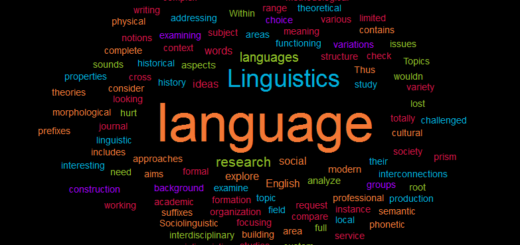Accounting Assignment Help: Solving Balance Sheet Problems Easily
Accounting—it’s more than numbers. It’s what tells whether a business is doing okay (or not). One of the most important tools in accounting is the balance sheet. Many students see it, scratch their heads, and wonder how to make sense of all those assets, liabilities, and equity entries. If you’ve ever been stuck thinking, “Why doesn’t this balance?” this post is for you. I’ll walk you through balance sheet problems, why they confuse people, and how accounting assignment help can make things a lot smoother.
What Is a Balance Sheet, in Simple Words
A balance sheet shows what a company owns and owes at a certain moment. It’s like a snapshot. On one side: assets—things like cash, machines, buildings. On the other hand, liabilities (what’s owed) and the owner’s share are often called equity. Everything on the “owns” side should match everything on the “owes + owner share” side. If they don’t match, something is off—and that’s usually where students get stuck.
Why Balance Sheets Often Cause Headaches
Balance sheet problems aren’t just about arithmetic. They happen when small details are missed or rules aren’t clear. Sometimes it’s simple, sometimes not. Here are common issues people encounter:
-
Missing small entries. Prepaid expenses, accrued payables—these often trip people up.
-
Mixing up classifications. Short-term vs long-term, or placing liabilities under assets by mistake.
-
Calculation slips. One wrong addition, subtraction, or decimal place, and the whole thing is wrong.
-
Not adjusting properly. Depreciation, bad debts, and stock value changes—these need adjustment, but students frequently ignore them or use wrong values.
-
Time pressure. When the deadline looms, quality drops. You rush, you forget to recheck, you stress.
These are real problems. It’s okay to struggle; many do. What matters is how you catch and fix the mistakes.
How Accounting Assignment Help Makes Solving Balance Sheet Problems Easier
If you work with someone good at accounting problems, here’s what they’ll do—what really helps:
-
Walk through every step. Not just “do this.” But why does this entry go here? Why does that number live in liabilities and not under assets? It builds understanding, not just knowledge.
-
Spot the small slips. People often miss tiny things—a number off by 100, or forgetting “accounts receivable.” Helpers can find those because they’ve seen similar mistakes many times.
-
Teach you adjustments. Depreciation—how much value assets lose over time. Provisions—money set aside for possible losses. These are confusing, so it helps when someone explains them plainly, maybe with stories (“You buy a machine; it’ll wear out, right?”).
-
Give practice sheets. You try many problems. You see different situations; you get confident. Because doing something once isn’t enough.
-
Check work for you. After you finish, you see what went wrong. You learn what to look for next time. That feedback loop helps more than you think.
-
Ensure everything is original. If someone writes for you, you want content that’s your own—in terms of effort, understanding, not copied. Academic rules are strict about plagiarism.
Tips You Can Use Right Now
Even if you don’t get help every time, some habits make the balance sheet work easier:
-
Always write down the basic equation: Assets = Liabilities + Equity. Keep it visible. If your totals don’t match, you’ll have a place to start looking.
-
Label things clearly. Write “Long-term liability,” “Current asset,” etc. Helps your brain keep track.
-
Don’t ignore small values. A tiny debt or prepaid item might not seem important, but can throw off sums.
-
Keep your work neat. Messy columns lead to misreading your own numbers.
-
Double-check addition and subtraction with a calculator or sheet. Then do it again. Routine helps.
-
Learn the accounting rules for adjustments well. Things like depreciation, provision for bad debts, or stock adjustments. Knowing these well saves lots of time.
-
Practice under timed conditions. Sometimes knowing how to do it isn’t enough—you need to do it with a deadline hanging.
How to Choose Good Assignment Help
If you decide to get outside help, here are qualities you want—things that really make a difference:
-
Experts in accounting. Not someone who writes about general topics, but someone who understands accounting language.
-
Clear explanations, not just solutions. You want to understand, not just pass.
-
Honest pricing. Students have budgets; good help should be affordable.
-
Responsible deadlines. They should deliver when they promise.
-
Responsive support. If you have a question, they should answer you. If something isn’t clear, they should clarify.
Why It Helps Beyond Just Homework
Doing balance sheets well isn’t just about passing a class. It builds skills you’ll use again and again:
-
You learn how real businesses manage finances.
-
You gain confidence when employers ask about financial statements or reports.
-
You become better at spotting mistakes—not just in your work, but in others’.
-
In exams, you’ll be quicker and more accurate. And when you work internships or in real jobs, those skills matter.
Final Thoughts
Balance sheets feel tough. They look formal, full of numbers, and sometimes, the rules feel arbitrary. But once you get the hang of them—once you understand where each item goes, why adjustments are needed, and how the math must match—they become less scary. Getting accounting assignment help isn’t about avoiding work; it’s about using resources well, learning faster, and reducing frustration.
If you’re struggling with balance sheet problems or just want someone to check your work, there’s no shame in asking for help. And if you want trusted, affordable, expert Accounting Assignment Help.



